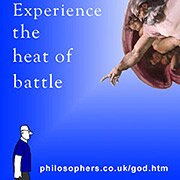300 years of Hume

David Hume
2011 marks the tercentenary of the birth of arguably Britain’s finest philosopher, David Hume. The anniversary is being marked in the city in which he was born and died. Edinburgh University, where he also studied, is hosting a series of events, including a panel discussion on his birthday (26 April), a number of major lectures by, among others, Amartya Sen, Peter Millican and Lord Sutherland, and an autumn series of lunchtime talks.
The 38th International Hume Society conference will also be held in Edinburgh in July.
In memoriam
Matthew Lipman (1922-2010), one of the pioneers of philosophy for children, died on December 26, aged 87.
Lipman first started thinking about philosophy for children in the 1960s, when as a professor at Columbia University he became concerned about the inability of people to clearly articulate their opinions on the Vietnam War. He had the thought that it was already too late to rectify their bad mental habits and so mooted the idea of teaching “the cultivation of excellent thinking” to children.
He wrote Harry Stottlemeier’s Discovery, his first book for his fledgling curriculum, in 1969; the following year, with the help of a National Endowment for the Humanities grant, he started up his programme in the public schools of Montclair, New Jersey.
By 1975 he had established the Institute for the Advancement of Philosophy for Children at Montclair State College. A journal Thinking: The Journal of Philosophy for Children, followed in 1979. Both the journal and the institute continue to thrive today.
Denis Dutton (1944-2010), the philosopher and founder of Arts and Letters Daily, died December 28, aged 66.
Arts and Letters Daily was founded in 1998, based on the simple idea of providing readers with a daily, select set of links to the most interesting articles, reviews and essays on the arts, ideas, philosophy and criticism on the web. It became a favourite bookmark for millions who relied on the service to filter out the best of the internet. In 2005, Time magazine named his as one of “the most influential media personalities in the world”.
But Dutton, a native of Los Angeles, was also a serious philosopher in his own right, who taught at several US universities before becoming a professor of philosophy at the University of Canterbury in Christchurch, New Zealand. His most recent book, The Art Instinct: Beauty, Pleasure, and Human Evolution, garnered many good reviews, and was selected by The Atlantic Monthly as one of its top 25 new books of 2009. Its review of the book called it “both cogent and exhilarating” a “hard-hitting amalgamation of critical theory and evolutionary science.”
Dutton detested bad prose, and for several years in the nineties ran the Bad Writing contest, aimed at naming and shaming the worst kind of academic obfuscation. The rules stated that “the entries had to be nonironic: We could hardly admit parodies in a field where unintentional self-parody was so rampant.”
As a critic, Dutton didn’t pull his punches. Perhaps most famously, he said that Peter Jackson’s film version of The Lord of the Rings “represents the victory of special effects over dramatic art. … I have never looked at my watch as often during a movie as I did in The Return of the King. Toward the end, I found myself desperately cheering on the giant spider in hope of getting home early. Eat Frodo! Eat him!”
In brief
The £10,000 Lakatos Award for an outstanding contribution to the philosophy of science has been awarded to Peter Godfrey-Smith, for his book Darwinian Populations and Natural Selection.
The Harvard professor’s book develops a new analysis and extension of Darwin’s idea of natural selection – one that draws on new developments in philosophy of science, biology and other fields. The central concept involved is that of a “Darwinian population”, a collection of organisms with the capacity to undergo change by natural selection. From this starting point, new analyses of the role of genes in evolution, the application of Darwinian ideas to cultural change, and “evolutionary transitions” that produce complex organisms and societies are developed.
Godfrey-Smith will visit the London School of Economics to receive the Award and give a public lecture during the 2011 summer term. The prestigious prize is awarded only in years that the judges believe a suitably worthy nomination has been received.
Keep up to date with what’s new in the world of philosophy by subscribing to tpm
 Email This Post
Email This Post 



The statue of Hume looks nothing like him.
It looks nothing like Allan Ramsay’s portrait, I should say.